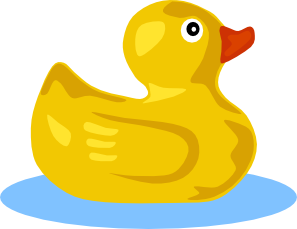Tags

The City of Reykjavik is asking people not to feed the ducks at The Pond (Tjörnin) during the summer months, as this increases the danger to them and their offspring. The main concern is the gulls, which also inhabit the pond, and can be very aggressive while fighting for the bread that people throw. The natural food supply available to the birds is sufficient to sustain them during the summer months.
Bannað að gefa öndunum brauð í sumar
Feeding Ducks Bread Prohibited In Summer
“Andarungum fjölgar hratt á þessum árstíma og sjást nú á ferð og flugi með foreldrum sínum á Tjörninni. Reykjavíkurborg vill brýna fyrir fólki að gefa öndunum ekki brauð yfir sumartímann, þar sem það eykur stórlega líkur á að hættulegir vargfuglar á borð við sílamáva geri vart við sig og geri ungunum mein.”
“Ducklings are rapidly multiplying this time of year and are being seen on the move with their parents at The Pond. The city of Reykjavik wants to impress on people the importance of not giving the ducks bread during summertime, since that greatly increases the likelihood of dangerous predator birds such as gulls hurting the ducklings.”
The word for duck (önd) seems to make an appearance quite often in my posts 🙂 In this case I didn’t even recognize it at first, since it was part of a compound that makes up the word for duckling (duck+nestling). As often happens when forming compound words, the first word is in the genitive case, so you have:
andar·ungi – duckling
Also new to me was the verb að brýna:
| að brýna – to encourage, urge | ||
|---|---|---|
| present | past | |
| ég | brýni | brýndi |
| þú | brýnir | brýndir |
| það | brýnir | brýndi |
| við | brýnum | brýndum |
| þið | brýnið | brýnduð |
| þau | brýna | brýndu |
I wasn’t completely sure about two of the phrases in this paragraph – á borð við seems to just mean such as, similar to, on the order of, etc. The other one that I kind of punted on was gera vart við sig. One dictionary gave to makes one’s presence known, so maybe its just implies taking an agressive stance, asserting oneself. Corrections always welcome 🙂
“Fram kemur á vef Reykjavíkurborgar að fækkun máva sé mikilvægur þáttur í að bæta afkomu andarunga. Sílamávarnir eru sólgnir í brauðið, en því miður er algengt er að þeir geri andarungunum mikinn skaða þegar þeir eru í brauðleiðöngrum við Tjörnina. Því er mjög mikilvægt að reyna að halda mávunum í skefjum á þessum tíma.”
“The City of Reykjavik website reports that a reduction in the number of gulls is an important factor in the ducklings’ survival. Gulls are eager for bread, and unfortunately it is very common for them to injure the ducklings while fighting for it at The Pond. Thus it is very important to try to keep the gulls at bay during this time.”
I had fun with brauðleiðöngrum…sheesh. Got sidetracked by the verb að angra, which has a form with öngrum, until finding the word leiðangur – expedition. I think with the prefix brauð- it means the act of the gulls going after bread at the pond.
| leiðangur (m) – expedition | ||
|---|---|---|
| singular | plural | |
| nom | leiðangur | leiðangrar |
| acc | leiðangur | leiðangra |
| dat | leiðangri | leiðöngrum |
| gen | leiðangurs | leiðangra |
This word has not only a u-shift (a->ö) but also exhibits fraction 🙂 Note how the u disappears in several of the declined forms.
Another fun word was the adjective sólginn. The phrase sólginn í + accusative can be variously translated as being eager/greedy/addicted to something as far as I can tell. It is related to the verb að svelgja – to gulp.
And finally the phrase að halda í skefjum means to restrain or hold back. It can be used with an object in the dative case, including reflexively with sér.
“Mikilvægast er að gefa öndunum ekki brauð eða annan skyndibita í júní og júlí, en yfir sumartímann er meira af náttúrulegu æti í Tjörninni fyrir bæði endur og svani og því er þörf fuglana fyrir brauðið minni.”
“Most important is to not give the ducks bread or other snacks in June or July, as during summertime there is plenty of natural food for both ducks and swans, and so the birds’ need for bread is less.”
skyndi·bit/i m (-a,-ar) snack æti n (-s) food, feed (for animals) þörf f (þarfar, þarfir) need, use
“Mávurinn leitar líka í matarleyfar í opnum ruslatunnum og því er fólk einnig hvatt til að ganga vel um og skilja ekki matarafganga eftir óvarinn í grennd við Tjörnina.”
“The gulls also look for leftovers in open garbage cans, and so people are also advised to take care not to leave leftovers unattended near The Pond.”
So please, if you are going to be in Reykjavik this summer, don’t feed the ducks down at The Pond!
